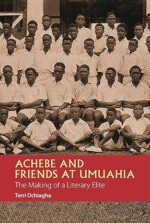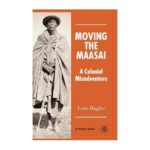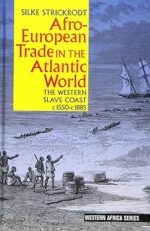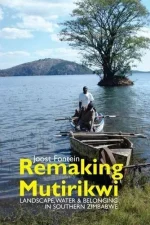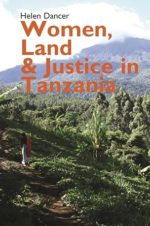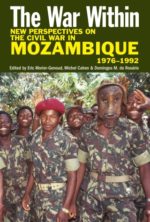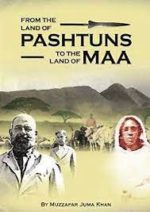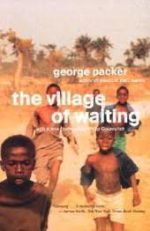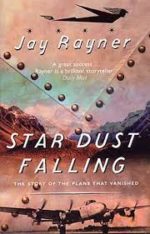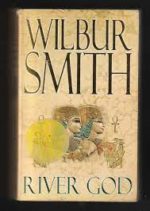-
Achebe and Friends at Umuahia
KSh 17,290.00WINNER OF THE ASAUK FAGE & OLIVER PRIZE 2016 This is the first in-depth scholarly study of the literary awakening of the young intellectuals who became known as Nigeria’s “first-generation” writers in the post-colonialperiod. Terri Ochiagha’s research focuses on Chinua Achebe, Elechi Amadi, Chike Momah, Christopher Okigbo and Chukwuemeka Ike, and also discusses the experiences of Gabriel Okara, Ken Saro-Wiwa and I.C. Aniebo, in the context of their education in the 1930s, 1940s and 1950s at Government College, Umuahia. The author provides fresh perspectives on Postcolonial and World literary processes, colonial education in British Africa, literary representations of colonialism and Chinua Achebe’s seminal position in African literature. She demonstrates how each of the writers used this very particular education to shape their own visions of the world in which they operated and examines the implications that this had for African literature as a whole. Supplementary material is available online of some of the original sources. See: http://boybrew.co/9781847011091_2 Terri Ochiagha holds one of the prestigious British Academy Newton International Fellowships (2014-16) hosted by the School of English, University of Sussex. She was previously a Senior Associate Member of St Antony’s College, University of Oxford.
-
-
Land, Migration and Belonging
KSh 14,560.00Tracing the history of the Basotho, a small mainly Christianised community of evangelists working for the Dutch Reformed Church, this book examines the challenges faced by minority ethnic groups in colonial Zimbabwe and how they tried to strike a balance between particularism and integration. Maintaining their own language and community farm, the Basotho used ownership of freehold land, religion and a shared history to sustain their identity. The author analyses the challenges they faced in purchasing land and in engaging with colonial administrators and missionaries, as well as the nature and impact of internal schisms within the community, and shows how their “unity in diversity”impacted on their struggles for belonging and shaped their lives. This detailed account of the experiences and strategies the Basotho deployed in interactions with the Dutch Reformed Church missionaries and colonial administrators as well as with their non-Sotho neighbours will contribute to wider debates about migration, identity and the politics of belonging, and to our understanding of African agency in the context of colonial and missionary encounters.
Published in association with the British Institute in Eastern Africa
-
Afro-European Trade in the Atlantic World The Western Slave Coast, c. 1550- c. 1885
KSh 14,560.00From 1550 to colonial partition in the mid-1880s, trade was key to Afro-European relations on the western Slave Coast (the coastal areas of modern Togo and parts of what are now Ghana and Benin). This book looks at the commercialrelations of two states which played a crucial role in the Atlantic slave trade as well as the trade in ivory and agricultural produce: Hula, known to European traders as Grand Popo (now in Benin) and Ge, known as Little Popo (nowin Togo). Situated between the Gold Coast to the west and the eastern Slave Coast to the east, this region was an important supplier of provisions for Europeans and the enslaved Africans they purchased. Also, due to its positionin the lagoon system, it facilitated communication along the coast between the trading companies’ headquarters on the western Gold Coast and their factories on the eastern Slave Coast, particularly at Ouidah, the Slave Coast’s major slave port. In the 19th century, when the trade at more established ports was disrupted by the men-of-war of the British anti-slave trade squadron, the western Slave Coast became a hot-spot of illegal slave trading.
Providing a detailed reconstruction of political and commercial developments in the western Slave coast, including the transition from the slave trade to legitimate commerce, this book also reveals the region’s position in the wider trans-Atlantic trade network and how cross-cultural partnerships were negotiated; the trade’s impact on African coastal “middlemen” communities; and the relative importance of local and global factors for the history of a region or community.Silke Strickrodt is Visiting Research Fellow at the Department of African Studies and Anthropology at the University of Birmingham. She is co-editor (with Robin Law and Suzanne Schwarz) of Commercial Agriculture, the Slave Trade and Slavery in Atlantic Africa (James Currey, 2013).
-
Remaking Mutirikwi: Landscape, Water and Belonging
KSh 9,100.00Finalist for the African Studies Association 2016 Melville J. Herskovits Award
The Mutirikwi river was dammed in the early 1960s to make Zimbabwe’s second largest lake. This was a key moment in the Europeanisation of Mutirikwi’s landscapes, which had begun with colonial land appropriations in the 1890s. But African landscapes were not obliterated by the dam. They remained active and affective. At independence in 1980, local clans reasserted ancestral land claims in a wave of squatting around Lake Mutirikwi. They were soon evicted as the new government asserted control over the remaking of Mutirikwi’s landscapes. Amid fast-track land reform in the 2000s, the same people returned again to reclaim the land. Many returned to the graves and ruins of past lives forged in the very substance of the soil, and even incoming war veterans and new farmers appealed to autochthonous knowledge to make safe theirresettlements. This book explores those reoccupations and the complex contests over landscape, water and belonging they provoked. The 2000s may have heralded a long-delayed re-Africanisation of Lake Mutirikwi, but just as African presence had survived the dam, so white presence remains active and affective through Rhodesian-era discourses, place-names and the materialities of ruined farms, contour ridging and old irrigation schemes. Through lenses focused on the political materialities of water and land, this book reveals how the remaking of Mutirikwi’s landscapes has always been deeply entangled with changing strategies of colonial and postcolonial statecraft. It highlights howthe traces of different pasts intertwine in contemporary politics through the active, enduring yet emergent, forms and substances of landscape.
Joost Fontein is Director of the British Institute in Eastern Africa and Lecturer in Social Anthropology at the University of Edinburgh.
Published in association with the British Institute in Eastern Africa.
-
Women, Land and Justice in Tanzania (African Edition)
KSh 2,000.00Recent decades have seen a wave of land law reforms across Africa, in the context of a “land rush” and land-grabbing. But how has this been enacted on the ground and, in particular, how have women experienced this? This book seeksto re-orientate current debates on women’s land rights towards a focus on the law in action. Drawing on the author’s ethnographic research in the Arusha region of Tanzania, it explores how the country’s land law reforms have impacted on women’s legal claims to land. Centring on cases involving women litigants, the book considers the extent to which women are realising their interests in land through land courts and follows the progression of women’s claims to land – from their social origins through processes of dispute resolution to judgment.
Dancer’s work explores three central issues. First, it considers the nature of women’s claims to land in Tanzanian family contexts,the value of land in an era of land reform and the ‘land rush’ across Africa, and the extent to which the social issues raised are addressed by Tanzania’s current laws and legal system. Secondly, it examines how agency and power relations between social and legal actors engaged in legal processes affect women’s access to justice and the progression of claims. Thirdly, it explores Tanzanian concepts of justice and rights and how women’s claims have been judged by land courts in practice.Helen Dancer is a lecturer in Law at the University of Brighton. She practised as a barrister in England specialising in family legal aid cases prior to training as a legal anthropologist. She is also a consultant for Future Agricultures at IDS, University of Sussex. Her areas of research interest include law and development, gender and land, and human rights and legal pluralism.
-
The War Within: New perspective on the civil war on Mozambique (African Edition)
KSh 2,000.00The 1976-1992 civil war which opposed the Government of Frelimo and the Renamo guerrillas (among other actors) is a central event in the history of Mozambique. Aiming to open up a new era of studies of the war, this book re-evaluates this period from a number of different local perspectives in an attempt to better understand the history, complexity and multiple dynamics of the armed conflict. Focusing at local level on either a province or a single village, the authors analyse the conflict as a “total social phenomena” involving all elements of society and impacting on every aspect of life across the country. The chapters examine Frelimo and Renamo as well as private, popular and state militias, the Catholic Church, NGOs and traders. Drawing on previously unexamined sources such as local and provincial state archives, religious archives, the guerrilla’s own documentation and interviews, the authors uncoveralternative dimensions of the civil war. The book thus enables a deeper understanding of the conflict and its actors as well as offering an explanatory framework for understanding peacemaking, the nature of contemporary politics,and the current conflict in the country.
Eric Morier-Genoud is a Lecturer in African history at Queen’s University Belfast; Domingos Manuel do Rosário is Lecturer in electoral sociology and electoral governance at Eduardo Mondlane University, Maputo, Mozambique; Michel Cahen is a Senior Researcher at the Centre National de la Recherche Scientifique (CNRS) at Bordeaux Political Studies Institute and at the Casa de Velázquez in Madrid.
-
From the land of Pashtuns to the land of Maa
KSh 2,000.00From the Land of Pashtuns to the Land of Maa: Memoir (2013) Kenyan-born Khan traces his father’s journey from his village in India (now within Pakistan) to Kenya in 1929, alone, at the age of 18 after a family dispute.
Here is the story of migration, of Khan’s father and other Pashtuns (mainly from the Punjab Province of Pakistan), to the Maasai tribal lands in rural Kenya. His father, Juma Khan, raised 18 children from two wives: the first was a Maasai woman who assumed a Muslim name after marriage, and the second was the daughter of a Pakistani father and Maasai mother. It was a time of colonial rule when mixed marriages – and children from them – were regarded with discrimination.
-
Einstein His Life & Universe By: Walter Isaacson
KSh 1,695.00Einstein was a rebel and nonconformist from boyhood days, and these character traits drove both his life and his science. In this narrative, Walter Isaacson explains how his mind worked and the mysteries of the universe that he discovered.
-
Violent Politics: A History of Insurgency, Terrorism, and Guerrilla War, from the American Revolution to Iraqer
KSh 1,500.00Guerrilla warfare is not just the tool of modern-day terrorists in the Middle East. Its roots stretch back to our very own revolution.
In Violent Politics, William R. Polk takes us on a concise, brilliant tour of insurgencies throughout history, beginning with America’s own struggle for independence. Continuing on, Polk explores the role of insurgency in other notable conflicts—including the Spanish guerrilla war against Napoleon, the Irish struggle for independence, the Algerian War of National Independence, and Vietnam—eventually landing at the ongoing campaigns in Afghanistan and Iraq, where the lessons of this history are needed more than ever.
-
The Village of Waiting
KSh 995.00Now restored to print with a new Foreword by Philip Gourevitch and an Afterword by the author, The Village of Waiting is a frank, moving, and vivid account of contemporary life in West Africa. Stationed as a Peace Corps instructor in the village of Lavié (the name means “wait a little more”) in tiny and underdeveloped Togo, George Packer reveals his own schooling at the hands of an unforgettable array of townspeople―peasants, chiefs, charlatans, children, market women, cripples, crazies, and those who, having lost or given up much of their traditional identity and fastened their hopes on “development,” find themselves trapped between the familiar repetitions of rural life and the chafing monotony of waiting for change.
-
Salamis : The Greatest Naval Battle of the Ancient World,
KSh 795.00“Salamis” tells the story of possibly the greatest naval battle of the ancient world. Involving hundreds of thousands of combatants and well over a thousand triremes – the ranking naval war engine of the time – it was the culminating battle in a twenty-year struggle between the Persian Empire and the Greeks. Against all odds – and with the help of a little treachery, a brilliant strategy and a lucky wind – the Greeks defeated the Persians, and with it began the roll-back of the Persian Empire, and the beginning of the Hellenic imperium. This epic tale is told through the individual stories of twelve characters, six form each side, each of which played a major role in the battle and its aftermath.
-
Churchill-by Ashley Jackson
KSh 700.00In a much-acclaimed account, Jackson describes the contours and contradictions of a remarkable life and a career he describes as ‘Winston Churchill’s appointment with destiny’.
-
The Dreadful Judgement
KSh 650.00If the story that struck the Grand Banks off Newfoundland in October 1991 was “The Perfect Storm”, the fire that destroyed London in September 1666 was “The Perfect Fire”. A fire needs only three things: a spark to ignite it, and the fuel and oxygen to feed it. In 1666, a ten-month drought had turned London into a tinderbox. The older parts of the city were almost entirely composed of wood-frame buildings and shanties. The riverside wharves were stack with wood, coal, oil, tallow, hemp, pitch, brandy, and almost every other combustible material known to seventeenth century man. On 2 September 1666, London ignited. Over the next five days the gale blew without interruption and the resulting firestorm destroyed the whole city. “The Dreadful Judgement” tells the true, human story of the Great Fire of London through the eyes of the individuals caught up in it. It is a historical story combining modern knowledge of the physics of fire, forensics and arson investigation with the moving eye-witness accounts to produce a searing depiction of the terrible reality of the Great Fire of London and its impact on those who lived through it.
-
Star Dust Falling
KSh 650.00In August 1947 in the highest of the High Andes, one of the earliest long haul passenger aircraft, a Lancaster called Star Dust, disappeared en route to Santiago, Chile. It left behind only questions: was it sabotage; was there a horde of gold on board; and what was the meaning of the radio operator’s mysterious final message before the air waves fell silent? Only with the discovery of the wreckage by two Argentinian climbers in January 2000 could those questions finally begin to be answered. Star Dust Falling is the story of those on board that pioneering aircraft and of the ramshackle airline British South American Airways which sent them to their deaths. Run by an austere Australian war hero newly arrived from bomber command, BSAA’s flying crew consisted entirely of ex-bomber pilots. The fleet of converted Lancaster Bombers operated on a shoestring, regularly flying without sufficient fuel or access to adequate weather forecasts. The result was that it became one of the most dangerous airlines in the western world. Yet it wasn’t until a third of its planes had crashed and dozens of its passengers had died that the Government finally called a halt. In this account, Jay Rayner recreates the events surrounding the loss of Star Dust and her discovery 50 years later, piecing together the lives of the characters involved: the Chilean-Palestinian passenger with a diamond stitched into the lining of his suit; the King’s Messenger with his bag full of diplomatic secrets; the crew of fearless pilots working in unbelievably strenuous conditions; the Argentinian climbers who risked their lives to find the wreck; and the Argentinian military men who declared war on each other in an attempt to claim the credit.
-
Sapiens: A Brief History of Humankind
KSh 595.00How did our species succeed in the battle for dominance Why did our foraging ancestors come together to create cities and kingdoms How did we come to believe in gods nations and human rights to trust money books and laws and to be enslaved by bureaucracy timetables and consumerism And what will our world be like in the millennia to come
-
In His Father’s Footsteps
KSh 400.00As the Americans liberate the Buchenwald concentration camp, among the survivors are teenagers Emmanuelle and Jakob, who fell in love despite the suffering surrounding them. With help, they make their way to New York, resolved to make a new life on the Lower East Side, working at gruelling, poorly paid jobs.
Decades later, Jakob has achieved enormous success, showing his son Max that America is truly the land of opportunity. Max is a Harvard graduate with friends among the wealthiest families in the world, and he chooses a perfect bride to start the perfect American family.
Max’s lavish lifestyle is unimaginable to his cautious, old-world parents. But after the birth of his children, and with a failing marriage, he fears his wife is keeping secrets.
KSh 795.00 -
River God (The Egyptian Novels)
KSh 400.00Ancient Egypt. Land of the Pharaohs. A kingdom built on gold. A legend shattered by greed…. Now the Valley of Kings lies ravaged by war, drained of its lifeblood, as weak men inherit the cherished crown. For Tanus, the fair-haired young lion of a warrior, the gods have decreed that he will lead Egypt’s army in a bold attempt to reunite the Kingdom’s shattered halves. But Tanus will have to defy the same gods to attain the reward they have forbidden him, an object more prized than battle’s glory: possession of the Lady Lostris, a rare beauty with skin the color of oiled cedar – destined for the adoration of a nation, and the love of one extraordinary man.
KSh 650.00

